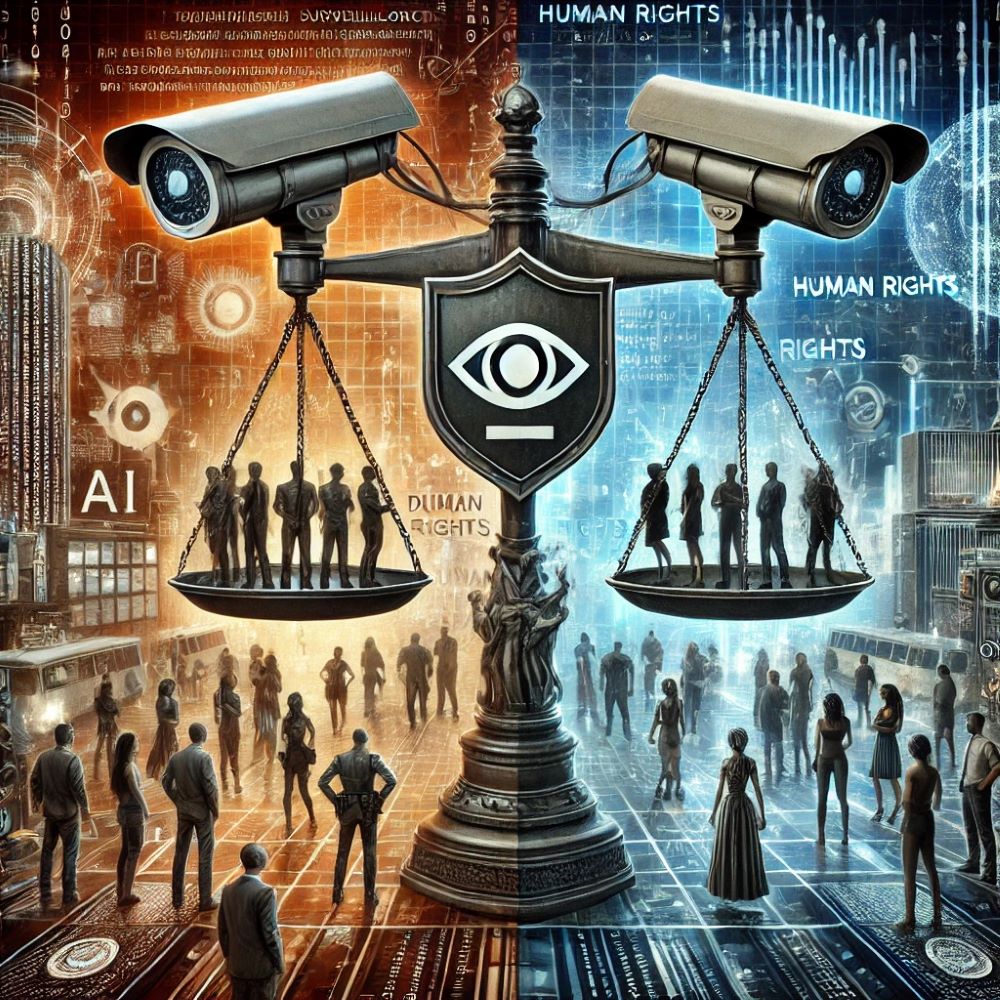Topic
| Human Rights Council | Topic | Member states | Links and documents | Contact |
|---|
Safeguarding human rights in the era of digital surveillance and Artificial Intelligence
Introduction:

Legal Implications: Key Human Rights at Risk:
A human rights framework addressing both artificial intelligence (AI) and digital surveillance is essential to protect core rights as set out in the Universal Declaration of Human Rights. Digital surveillance and AI systems, when unchecked, risk infringing on the right to equality by reinforcing bias, as well as threatening privacy by collecting vast amounts of personal data without clear consent or adequate protections. Privacy, a cornerstone of human dignity, can be easily compromised by widespread surveillance and data tracking, leading to intrusive profiling and surveillance of individuals. Both AI and surveillance systems need transparency and accountability to ensure that individuals have the right to understand, question, and seek remedy for decisions that affect them. Freedom of expression also comes under threat when digital tools censor or restrict voices unfairly, impacting open discourse and diversity of thought. Economic security and the right to work are further endangered as AI reshapes industries, potentially displacing jobs, while surveillance practices in workplaces can create a climate of fear and reduce worker autonomy. In high-stakes applications, such as law enforcement and national security, AI-driven surveillance must be strictly regulated to prevent rights abuses, wrongful profiling, and discrimination. Establishing robust international standards is vital for the ethical application of AI and surveillance, ensuring technology serves humanity without eroding the rights and freedoms that define it.
How to Protect Human Rights in AI and Digital Surveillance?
 To ensure the protection of human rights in the realms of digital surveillance and artificial intelligence, both companies and states must take proactive, ethically grounded measures. Companies should prioritise transparency, making clear how they collect, store, and use data while implementing strong privacy protections and ethical AI framework that prevent bias and discrimination. Robust data protection standards and algorithms designed to respect individual rights are essential. States, on the other hand, have a responsibility to enact and enforce comprehensive legislation that holds companies accountable and safeguards citizens from intrusive surveillance practices. This includes establishing regulatory bodies with the authority to monitor and address misuse, as well as promoting digital literacy among citizens. Additionally, international cooperation is vital to ensure a unified approach, setting global standards that prioritise human rights in the digital landscape. By working in tandem, companies and governments can create a responsible digital ecosystem that respects and upholds individual freedoms.
To ensure the protection of human rights in the realms of digital surveillance and artificial intelligence, both companies and states must take proactive, ethically grounded measures. Companies should prioritise transparency, making clear how they collect, store, and use data while implementing strong privacy protections and ethical AI framework that prevent bias and discrimination. Robust data protection standards and algorithms designed to respect individual rights are essential. States, on the other hand, have a responsibility to enact and enforce comprehensive legislation that holds companies accountable and safeguards citizens from intrusive surveillance practices. This includes establishing regulatory bodies with the authority to monitor and address misuse, as well as promoting digital literacy among citizens. Additionally, international cooperation is vital to ensure a unified approach, setting global standards that prioritise human rights in the digital landscape. By working in tandem, companies and governments can create a responsible digital ecosystem that respects and upholds individual freedoms.
Further discussion is required to address numerous questions:
1. What are the implications of digital surveillance on human rights, particularly concerning privacy, freedom of expression, and the ability to dissent in democratic societies?
2. To what extent should governments regulate digital surveillance and artificial intelligence to protect human rights without stifling innovation and technological progress?
3. How can international human rights frameworks adapt to address the challenges posed by AI and digital surveillance, ensuring protections against discrimination, privacy invasion, and misuse in both public and private sectors?
